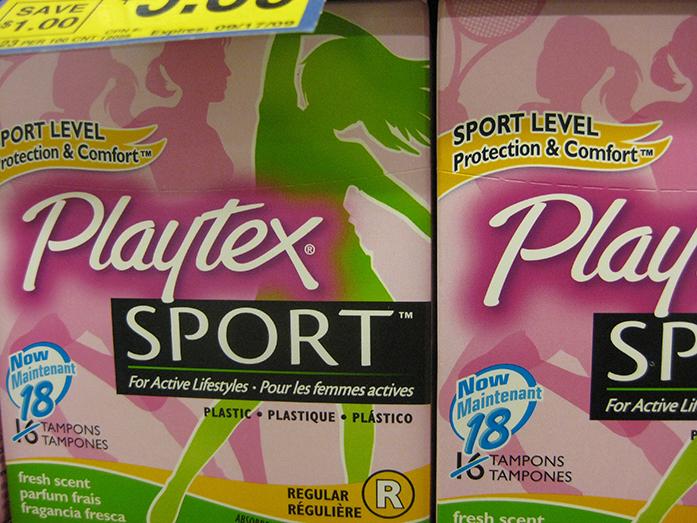Helton: Tax-free tampons — it’s the least we should do
It’s not about the money. It’s about misogyny.
September 26, 2018
When I moved to Iowa five years ago, one thing I didn’t expect to change was grocery shopping. In our state, we don’t pay a sales tax on most food items. That box of Oreo O’s is listed at $3.98? I pay $3.98 and not a penny more.
It’s great to save about a quarter for the cereal that took way too long to be resurrected from my childhood, but why does Iowa do this? In order to save the taxpayers a little money, we’ve decided to not charge our usual 6 percent sales tax on unprepared food because it’s considered “essential.” This makes enough sense on the surface: There aren’t a lot of things taking a higher priority than food. But what about other consumable necessities? Why aren’t feminine products tax-free?
RELATED: Fourth Wave Feminism and its political implications
If my sugar-loaded cookie cereals are tax-exempt, so should menstrual cups. I can’t think of any good reason not to write this into law. It can’t be that impossible for the (mostly male) state legislature to do the bare minimum for Iowa’s women. It’s a low bar to reach. There. Column finished.
Evidently, it’s not that easy to make the world just a little fairer for those who get periods. I spoke with Carolyn Jones, the chair in income tax at the University of Iowa College of Law, to find out how we could make this seemingly simple fix.
Jones said it would probably take a change to the Streamlines Sales and Use Tax Agreement, which includes Iowa and 23 other states.
RELATED: Helton: 20 out of 20: Elizabeth Warren, champion of Women’s Marchers?
“I certainly understand the argument for exempting feminine products,” Jones said. “I think there’s something to be said for it.”
However, it’s not likely that our state will start loosening up on menstrual cups anytime soon. Jones said that Iowa closely models its tax code after the states’ tax agreement and probably wouldn’t change its approach to feminine products unless the Streamlined Sales Tax Governing Board moved to do so.
It’s odd that those opposed to unburdening those with vaginas are usually the ones saying that taxes are too high in the first place. In fact, the “fundamental purpose” of the tax agreement is “to substantially reduce the burden of tax compliance.”
But what does that agreement say about tampons, pads, and products similar to them? It puts them in the health-care category. That actually makes sense knowing it’s something poor people struggle to afford in the United States.
“I know for lots of low-income families, the cost of feminine products can really be a problem,” Jones said.
It’s almost as if it’s not really about the few extra dollars lost in tax revenue and more about charging women more for their essentials. If men were the ones with periods, tampons would be distributed as freely as acquittals in rape cases.
Making up the lost income from exempting feminine products wouldn’t be too hard in Iowa. We could think of all sorts of non-gendered ways to make our tax code more efficient. We could decide that my breakfast of miniature cookie doughnuts wasn’t as essential as half the population’s sanitation. But that’d probably bring about the apocalypse.
Tampons and pads shouldn’t just be tax-free, they should just be free. But let’s start with baby steps.






